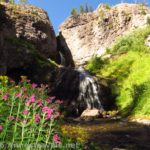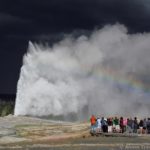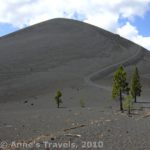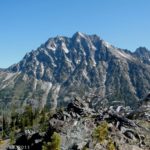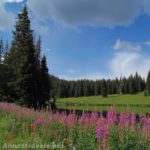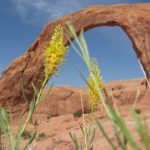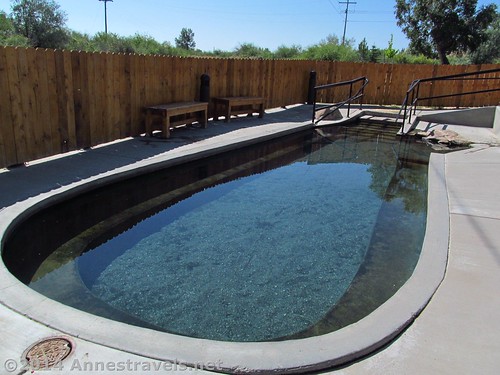
In some of the more famous national parks, it’s not all that uncommon for the park service to offer up a sort of “sanitized” experience for visitors. Basically, they’ve roped off or covered over the dangerous parts of exploring the most popular areas so that people don’t get hurt, lost, or otherwise inconvenienced. It saves the park staff innumerable hours of search and rescue operations and it helps people who aren’t all that “outdoorsy” to enjoy the parks.

I can appreciate it at times – I wouldn’t want to walk across Yellowstone’s geyser basins without boardwalks. But it’s not the natural experience. It’s not like going into a random meadow and suddenly seeing a geyser shooting out of the ground. The same things happen with viewing platforms below waterfalls: It’s great to see the falls, but it’s not the same experience as walking up a stream or creeping along the riverbank to get the best view possible (despite the convenience of not slipping on rocks or having the riverbank collapse beneath you).
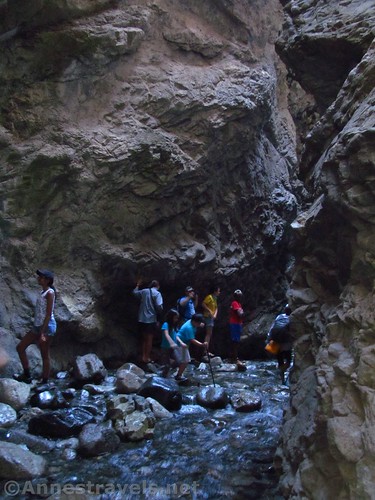
I’m finding the sanitized experience more often in recent years as I’m returning to the parks I visited as a younger child. The trails are better defined, more signs and ropes block off areas you’re not supposed to be exploring, more infrastructure “helps” you get the best experience possible. But it’s also more fake – more human-created – less dangerous than it used to be.

So I go into the backcountry where there are still vague trails, cliffs without guardrails, and streams that don’t have bridges. Honestly, I like conveniences like bridges. But sometimes it’s just nice to get back to the unsanitized version, the natural version, the way that God created it.

Too often in our churches and Christian organizations, we “sanitize” the gospel. We want to make it safe for everyone involved – to make it appealing – to keep ourselves and leadership from needing to do hours of “search and rescue” when things get messy. And so we make the gospel appealing, safe, and devoid of devotion or power.
But in doing so, we risk losing the real, natural experience of Christ that He gave to us. We start building up human-made platforms to view God; we rope off areas that are too theologically messy to deal with. We never tell people about the transforming power of God because we’re afraid of scaring them away (and perhaps we’re just a little scared of it ourselves).

It’s convenient to have a safe, sanitized gospel, just as it’s convenient to have all the dangerous parts roped off on a hike. The problem is that Christ didn’t come to save us so that we could live safe, comfortable lives after having said the sinner’s prayer. He didn’t live a life on earth that was inoffensive or that had all the answers explained plainly (see Matthew 13:10-16).
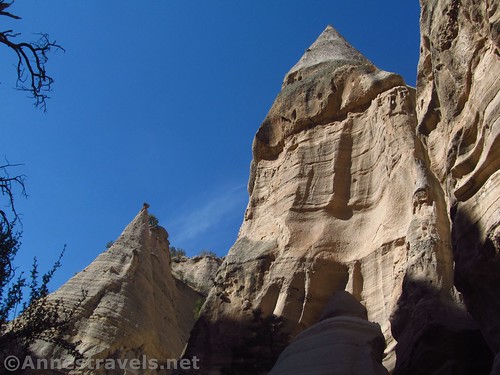
Paul the apostle risked his life many times over to share the gospel with much of the known world. He didn’t try to make the gospel sanitized, appealing to everyone. He wrote, “For Christ did not send me to baptize, but to preach the gospel – not with wisdom or eloquence, lest the cross of Christ be emptied of its power… we preach Christ crucified: A stumbling block to the Jews and foolishness to Gentiles” (1 Corinthians 1:17, 23). No, the gospel Paul preached was one of power and authority; a gospel that did not rely on human thought or argument; a gospel that relied on Christ and Him crucified.

It’s time that we left our sanitized Christianity. It’s time for us to step beyond comfort zones into the power of God. Yes it’s scary – I know that first-hand – but it’s the truth of living Jesus on earth. Without His power, we are powerless. Without following God into the places He has for us, we’re nothing better than a group of tourists 20 paces away from our tour bus applauding a geyser from the comfort of a boardwalk. Maybe we’re not all explorers. Maybe we’re not all the ones that should be finding new paths and new geysers. But we’re all called to experience God in His fullness – and that means living an unsanitized gospel.


